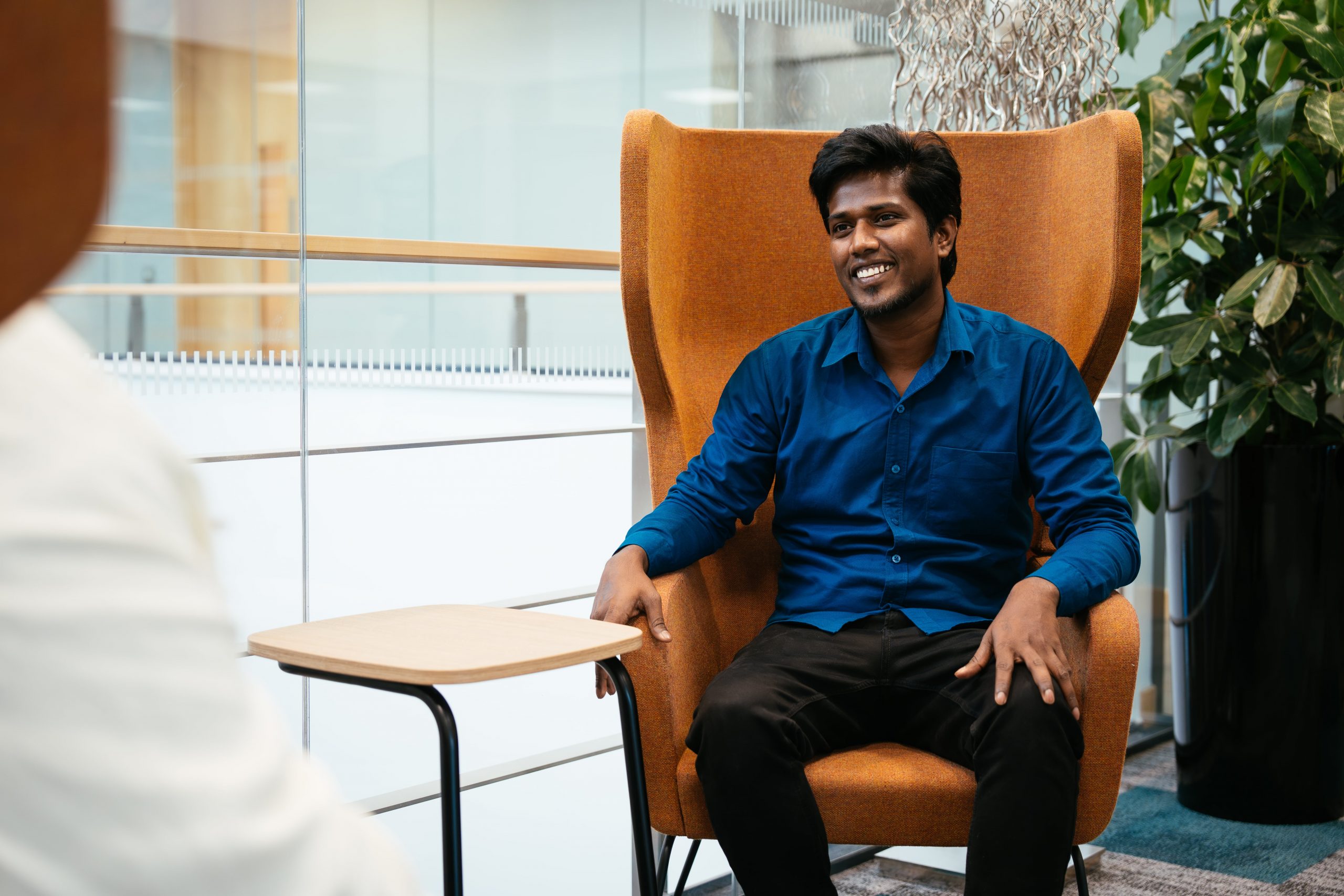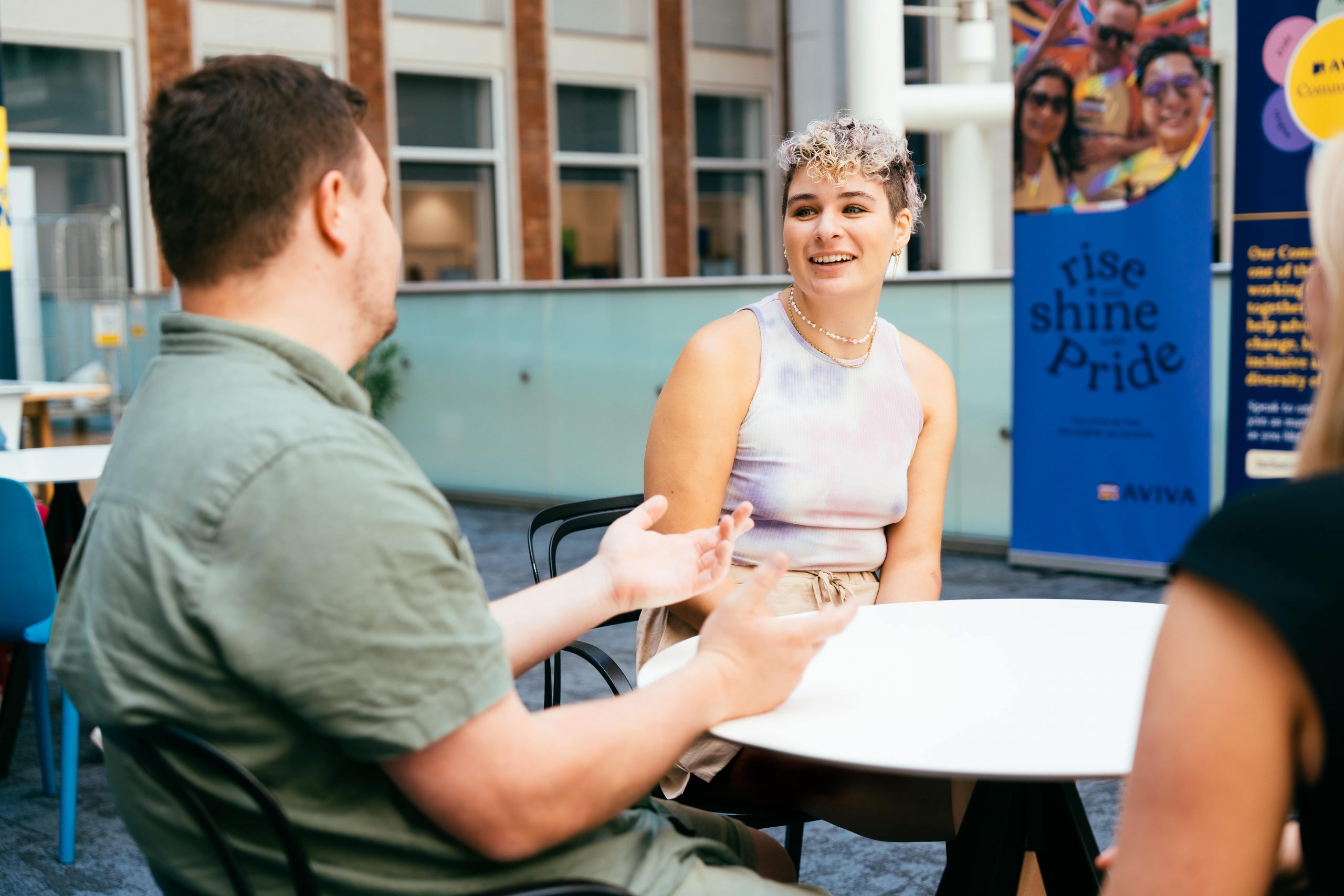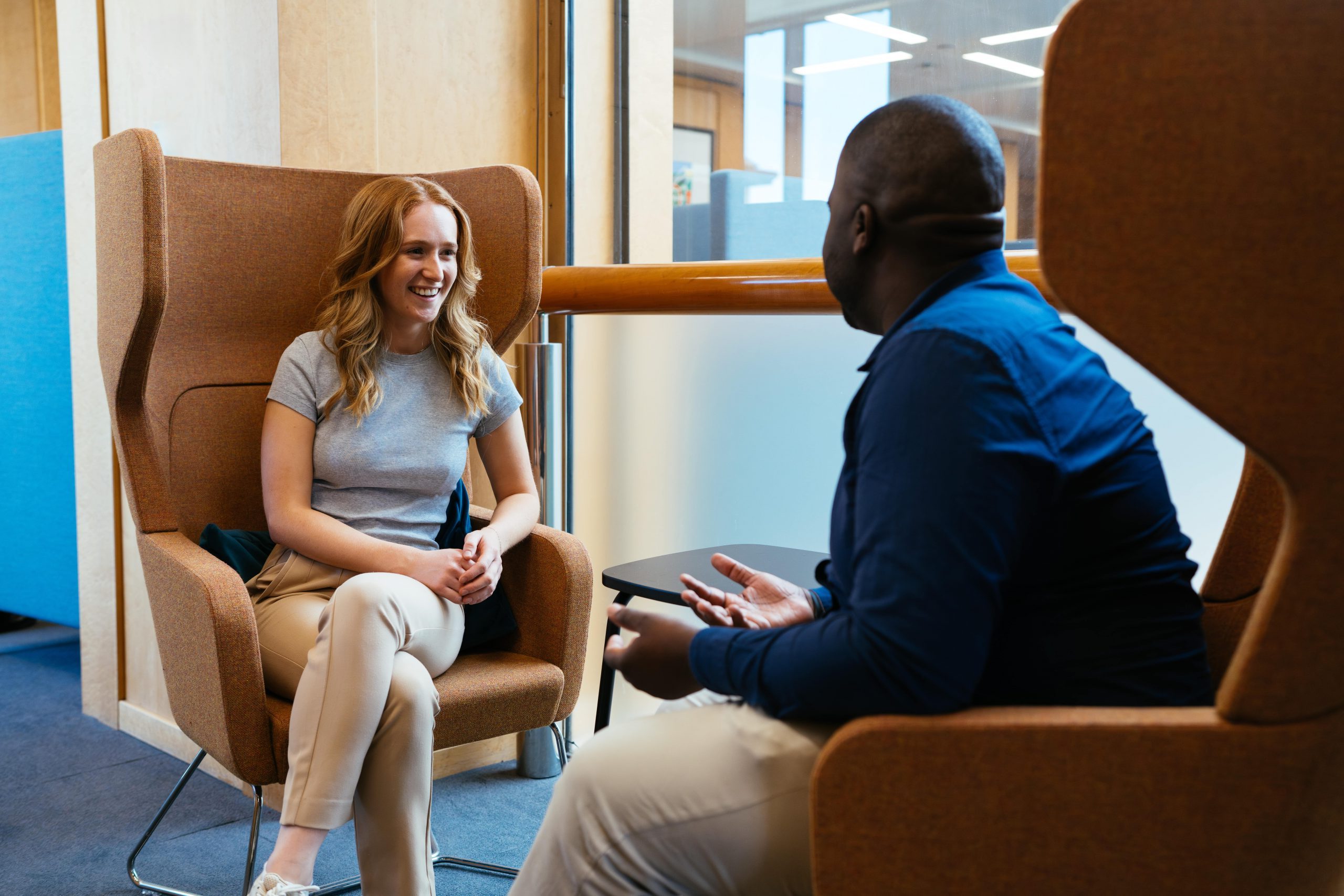- Careers
- Aviva.com

When you meet us, we want you to be at your best. So, we’ve put together a few hints and tips to help you feel ready.

Your interview is your chance to show your skills, personality, and suitability for the role. It’s well worth spending time preparing how you can best demonstrate these.
Scan over the job advert again. Make sure you understand exactly what we’re looking for. Then, think back on your career, key experiences and projects. How have you approached them? How did you collaborate with the people around you? Make a mental note of these key achievements and any other examples that demonstrate what you can bring to our team.
And remember, this is a two-way process. So, feel free to prepare some questions of your own. They’ll help you get a feel for the role and whether it’ll be a good fit for you.
Research into our company goals, values, and products and services. Bring these up naturally to show your insight.

This is where we ask you what you’re good at and what you enjoy.
We want to get a feel for what motivates you, so we can understand you better. In this kind of interview, energy, enthusiasm, and pride in your work are the most important things.
These are the kind of questions you could get asked:
Remember that employers look for genuinely passionate and energised responses. In addition to well-structured and meaningful content.
Preparing well means you can go into the interview feeling relaxed and confident about what you’re going to say. Here are our tips to get you started.
And know the best way to talk about them. Ask yourself:
There are lots of chances to develop at Aviva, so make sure you’re clear about what direction you want to move in. We want to see you grow with us. We don’t expect you (or anyone) to be perfect, so be honest when we ask you where you could improve.
If your answers relate to them in some way, we’ll be very happy. But it’s also important our values align with yours. An interview is a chance to assess whether we’re the right company for you too.
Take time to familiarise yourself with the skills and experience listed in the job advert and be prepared to explain how you’ve demonstrated them in other roles, or life in general.
There are no right or wrong answers, but there is a right and a wrong way to present yourself. One of the most common mistakes people make in interviews is to frame their responses around what they think the interviewer wants to hear.
Don’t forget to share detailed examples that demonstrate your strengths. We’d like you to paint a full picture of how, and when, you achieved something great.
We genuinely want to get to know you, so think of this as a lively conversation with like-minded people.

If your interview is face-to-face, make sure you:
If your interview is via video call, most of these still apply. But because it can be a new format for many people, we’ve got a few extra dos and don’ts to help you shine online.
Video interviews can be tricky and although we love meeting you all through the screen, we understand not everyone is used to this format.
Our ‘Dos’ and ‘Don’ts’ below outline how to make the most of the process, and how to improve your online interview skills.
And have plenty of charge on your device.
Minimise background noise as best you can and remove yourself from any distractions.
It’s just as important to make eye contact on a video interview (perhaps more so). And smile.
It’s obvious when you’re reading, and it’ll come across as inauthentic.
A short answer is better than an incoherent one, so focus on keeping your answers concise.
If you have a problem, report it to your contact. It’s better you highlight an issue than for it to impact your interview.
If you have a condition or disability that makes video interviews difficult, please let us know. We’ll explore other avenues to ensure you get the chance to perform at your best.